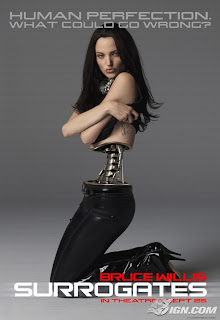There are many things to love about this wonderful holiday, but to boil the day down to it's essence: It's about being scared, and spending lots of money. With that in mind, here's a list of some of my favorite horror films about consumerism.
1. DAWN OF THE DEAD (1978)
Let's just get the obvious out of the way, shall we? In brief, it's the story of a rag-tag group of zombie apocalypse survivors hiding out in a suburban shopping mall. Unfortunately for them, the mall is just as popular as it's ever been, and the patrons aren't human.
The remake got the setting right, but the attitude was all wrong; the zombies are here for human flesh, but they also just love the shops. As one of the main characters says, "This was an important place in their lives". The zombies eventually become manageable, but the living seem to have some difficulty letting go of their possessions. . .
Bloody, hilarious, terrifying, and tender, this is about as close to art as horror cinema tends to get. A must see. . . if you've got the guts.
2. THE STUFF
"Are you eating it. . . or is it eating you?!"
So asks director Larry Cohen in The Stuff, the story of a yogurt alternative that perhaps has a bit too much life in it; it eats people from the inside out! A wry commentary on the food industry, this parable will make you think twice about being spoon fed.
3. HALLOWEEN III: SEASON OF THE WITCH
The Silver Shamrock company has been delighting kids for years with their Halloween masks. Only this year, they have a special surprise for the kiddies. . . masks that will kill them, and their parents, in the most horrifying way imaginable!
 The kids have no chance, since they are powerless to resist the irritating Silver Shamrock commercials that you hear every few minutes of the movie. To parents, they're simply an irritation, and never once does anyone suspect that there's something just a bit sinister about that flashing jack o'lantern.
The kids have no chance, since they are powerless to resist the irritating Silver Shamrock commercials that you hear every few minutes of the movie. To parents, they're simply an irritation, and never once does anyone suspect that there's something just a bit sinister about that flashing jack o'lantern.4. DAYBREAKERS
Vampires are blood-suckers in every sense of the word. As such, they've managed to subjugate the world, and drained all of it's precious resources in a relatively short period of time. Most importantly? Human blood. A synthetic version is being worked on, but can it be discovered before the collapse of civilization? And is it better to save a civilization run by parasites. . . or change it?
5. VIDEODROME
 Max isn't a bad guy. He's just the head of a UHF station that specializes in broadcasting soft-core porn. It's not like he makes the stuff. But he's gotta find the next big thing, before the competition does. And when he stumbles across a fractured video feed of a fake snuff film, he thinks he's found it. But as he investigates the origin of the signal, he begins to question whether the video was actually fake. In fact, he begins to have difficulties telling the difference between reality and fantasy.
Max isn't a bad guy. He's just the head of a UHF station that specializes in broadcasting soft-core porn. It's not like he makes the stuff. But he's gotta find the next big thing, before the competition does. And when he stumbles across a fractured video feed of a fake snuff film, he thinks he's found it. But as he investigates the origin of the signal, he begins to question whether the video was actually fake. In fact, he begins to have difficulties telling the difference between reality and fantasy.Have fun, kiddies! And again. . . Happy Howl-o'ween!!!!









